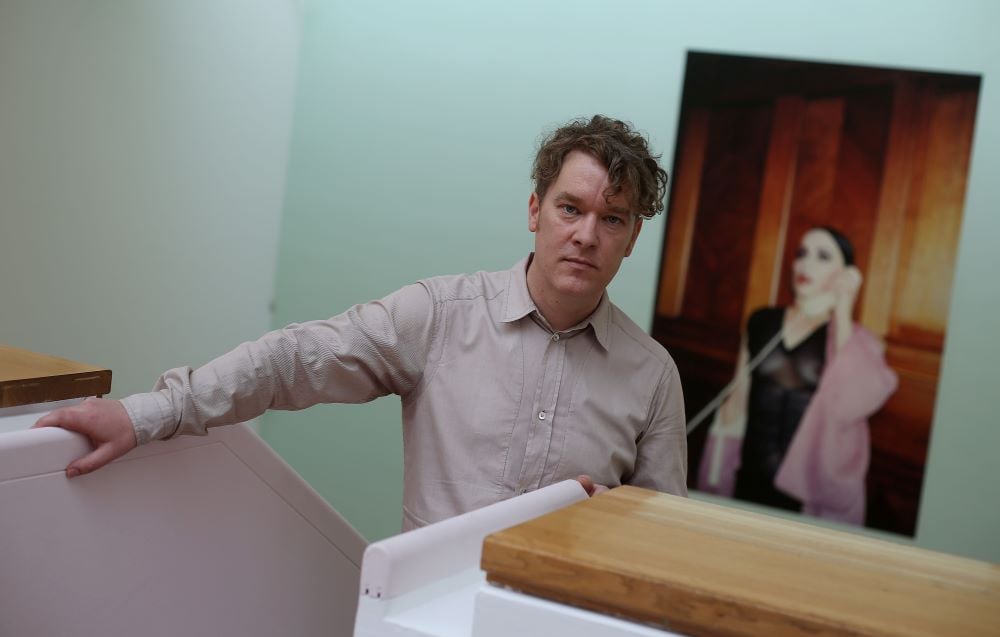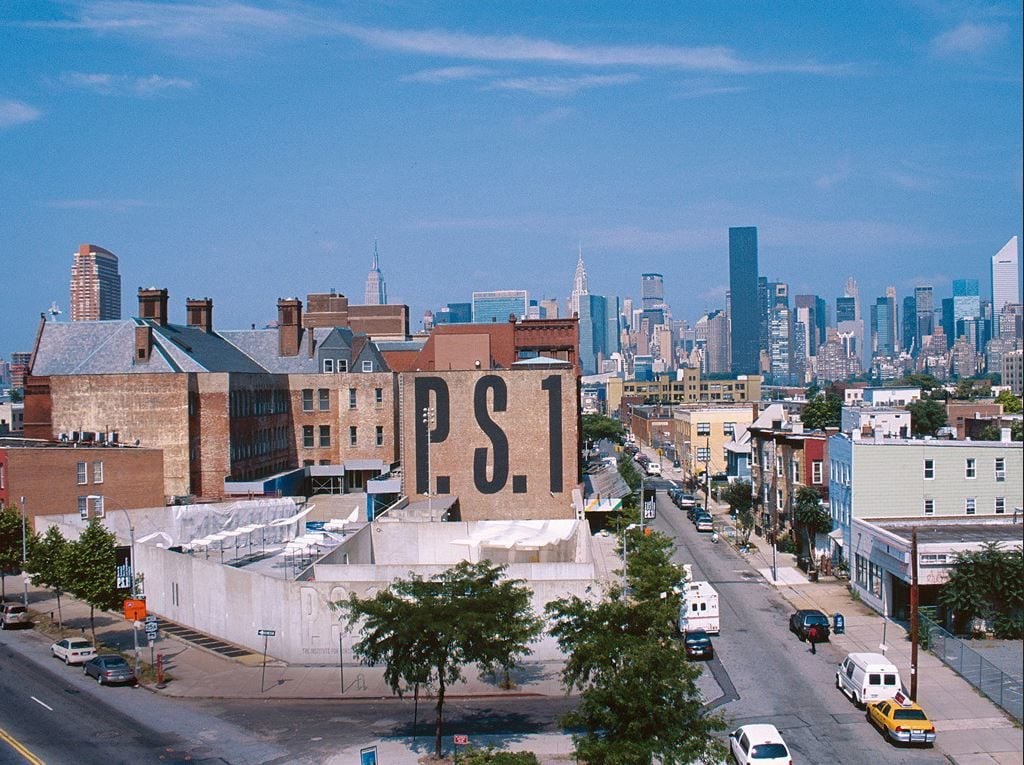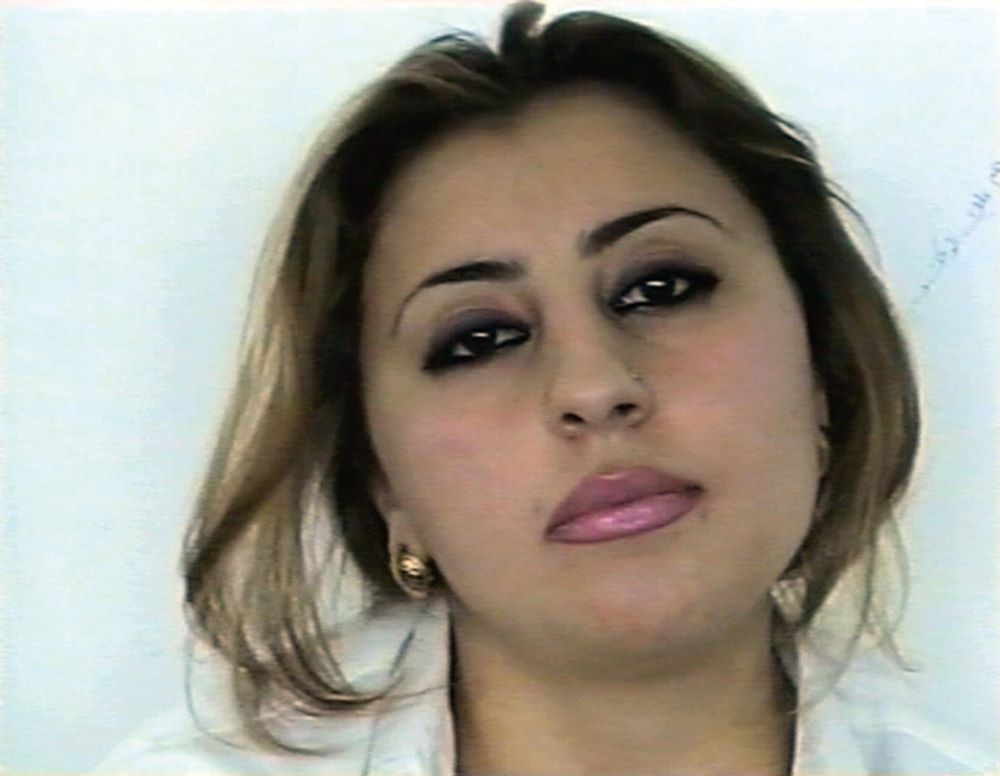Politics
Artist Phil Collins Pulls His Work From a MoMA PS1 Show in Protest of a Trustee’s Ties to For-Profit Prisons
MoMA donor Larry Fink and his company BlackRock are under scrutiny.

MoMA donor Larry Fink and his company BlackRock are under scrutiny.

Eileen Kinsella

The British multimedia artist Phil Collins is withdrawing his work from a show opening this Sunday at MoMA PS1, “Theater of Operations: The Gulf Wars 1991-2011,” in protest of a museum donor who has controversial business ties.
MoMA trustee Laurence Fink is CEO of the investment firm BlackRock, which owns stakes in the private prison corporations GEO Group and Core Civic. Activists such as the groups #MoMADivest and CodePink have accused him of profiting “from war, ICE detention centers, private prisons, and the climate crisis.”
“In light of recent actions organized by the MoMA/BlackRock Divest coalition, and information made public by activists and campaigners, I have decided to remove my work baghdad screentests from the exhibition,” said a statement from the artist. “This decision is an expression of solidarity with the millions of human beings currently held in cages in US prisons and jails, with their communities and loved ones, and with friends, colleagues, organizers, and campaign groups working tirelessly to call out, resist, and counter the social violence perpetuated by the prison system.”

Image courtesy of moma.org
The video baghdad screentests (2002) riffs on Andy Warhol’s Screen Tests (1964-66) and features 40 Baghdad residents silently staring at the camera. The news of its withdrawal was first reported by ARTnews.
In addition to protesting Fink’s ties to for-profit prisons, activists have also alleged that MoMA uses Fidelity Investments, which owns stock in these private prison groups, to manage its pension fund. In a previous report on the protests over Fink at MoMA, a museum spokesperson told ARTnews that the museum “does not invest in for-profit private prisons, and Fidelity does not manage our pension plan,” saying that it was instead managed by an “investment committee.”

Phil Collins, baghdad screentests,(2002)
Image courtesy Shady Lane Productions
Collins noted in his statement that his work deals directly with the impact of prisons and that this relationship “compels me to speak out in opposition to the ongoing expansion of the prison industrial complex.”
The British artist’s act of protest comes on top of a wave of actions against controversial donors in recent months that have shaken the museum world. These have included months of protests of teargas manufacturer Warren Kanders’s position on the board of the Whitney Museum, which sparked an artist boycott and led to his resignation in July. Last week, New York politician Melissa Mark-Viverito was arrested in front of MoMA with other activists while protesting another board member, Steven Tananbaum, who is accused of profiting from investments in Puerto Rican debt.
“The times we live in are not business as usual,” Collins continued. “Museums and cultural spaces, their collections, exhibitions and programs, should not be aligned with or funded by investments in mass incarceration, war profiteering, ecological catastrophe, debt ownership, devastation, oppression, and the pain of others.”
MoMA PS1 did not immediately respond to request for comment. Formerly known as PS1 Contemporary Art Center, the institution affiliated with MoMA in 2000 and officially changed its name to MoMA PS1 in 2010. However, because the merger was designed to preserve the smaller organization as “a center of independent experimentation and exploration,” it technically maintains a separate board of trustees, which does not include Fink.
The complete text of Collins’s statement is below:
In light of recent actions organised by the MoMA/BlackRock Divest coalition, and information made public by activists and campaigners, I have decided to remove my work baghdad screentests from the exhibition “Theater of Operations: The Gulf Wars 1991–2011” which opens at MoMA PS1 this week.
This decision is an expression of solidarity with the millions of human beings currently held in cages in US prisons and jails, with their communities and loved ones, and with friends, colleagues, organisers and campaign groups working tirelessly to call out, resist and counter the social violence perpetuated by the prison system.
My work over the years, both inside and outside prisons, with those directly impacted compels me to speak out in opposition to the ongoing expansion of the prison industrial complex. Prison companies are a part of the racist, state-sanctioned carceral system of the United States—the largest jailer in the world—that places a massively disproportionate number of people of colour behind bars, and decimates communities and individual lives. Even after their release, people remain confined and punished by invisible barriers, physical, emotional and economic.
The times we live in are not business as usual. Museums and cultural spaces, their collections, exhibitions and programs, should not be aligned with or funded by investments in mass incarceration, war profiteering, ecological catastrophe, debt ownership, devastation, oppression and the pain of others.
The impulse to examine US/UK and Western imperialism in the Middle East is important. I admire the artists included in the exhibition and their work, and hope that my action can contribute to the global momentum to protest inequity, occupation, labour extraction and disenfranchisement, and to see, together, better days.
In coordination with members of the MoMA/BlackRock Divest coalition, baghdad screentests will screen over the coming months in communities around the city that are affected by dispossession, war, detention, and incarceration economies and policies.
With thoughts of everyone who cannot be with us right now,
Phil Collins